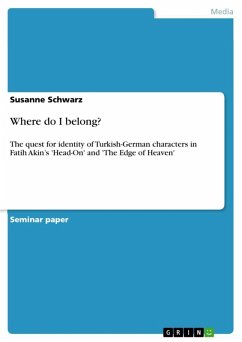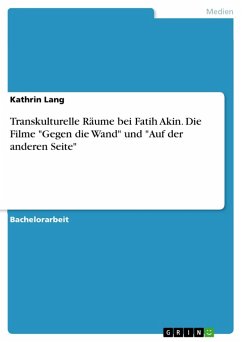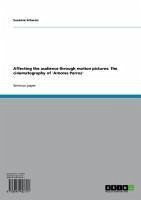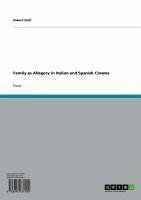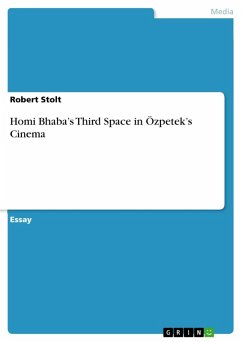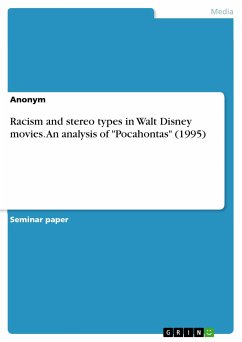Seminar paper from the year 2009 in the subject Film Science, grade: 1,5, University of London, course: Cinema and Nation, language: English, abstract: In the 1980s Turkish-German cinema started to become an important impact on German national cinema. But sine the 1980s much has change in the cinematic representation of Turks, living in Germany. The former 'mute Turk' (Bhabha, 1990, pp. 315 - 317), the guest worker that was excluded from German society has become the multicultural second-generation immigrant that owns a German passport. Turkish-German filmmakers such as Fatih Akin, Thomas Aslan or Yüksel Yavuz deal with the topic of Turkish-German identity (Göktürk, 2002, pp. 253 - 255). Unfortunately, academics have not yet caught up with contemporary cinema: most critics still talk about the representation of immigrants as victims in western society. In Crossing The Bridge, Akin seems to celebrate Istanbul's diversity and one wonders if contradictions can exist next to each other. Cultural extremes cause tensions. And these tensions are displayed in the Turkish-German characters of Akin's feature films. To represent the being in-between Turkish and German culture of his characters, Akin uses the image of crossing between extremes. He crosscuts between two countries, Germany and Turkey. In Head-On (2004) the female character Sibel crosses between genders: she is a woman but acts like a man; she wears man's clothes and behaves aggressively. The characters cross between languages: the Turkish-German protagonists speak both, Turkish and German, at the same time. Sometimes, they even switch into the other language within one sentence. This essay will analyse how Fatih Akin represents the character's being in-between two cultures in his film Head-on and The Edge of Heaven (2007). At first, there will be a short part about Fatih Akin, then, I will give a short overview of both films, the issues and the characters. Finally, there will be an analysis of several sequences about the topics: countries, languages and gender.
Dieser Download kann aus rechtlichen Gründen nur mit Rechnungsadresse in A, B, BG, CY, CZ, D, DK, EW, E, FIN, F, GR, HR, H, IRL, I, LT, L, LR, M, NL, PL, P, R, S, SLO, SK ausgeliefert werden.

